Best Tools for Medical Records Management, Compared
1. Greenway Health Prime Suite
- Customizable, clinically driven electronic health record and practice management system
- Cloud-based solution for flexibility and accessibility
- Integrated add-on options for increased patient engagement and profitability
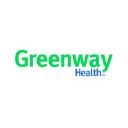
Greenway Health Prime Suite is a cloud-based, clinically driven electronic health record and practice management system, offering customizable solutions tailored to meet the specific documenting, billing, and reporting needs of medical practices. With integrated add-on options, support for value-based programs, and over 4,000 customizable clinical templates, Prime Suite stands as a comprehensive and versatile EHR solution for modern healthcare practices.
Experience the transformative capabilities of Greenway Health Prime Suite, designed to optimize clinical workflows, improve patient engagement, and drive performance, setting a new standard for EHR and practice management in the healthcare industry.
2. InSync
- Secure synchronization and backup of Google Drive data
- Support for multiple Google Drive accounts
- Popular choice for business continuity planning
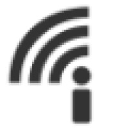
InSync is a popular Plan de Continuité d'Activité (PCA) software known for its secure synchronization and backup features for Google Drive data. With support for multiple accounts, it's a preferred choice for businesses looking to ensure operational continuity.
Its affordable pricing model combined with positive user reviews makes InSync a practical and reliable solution for businesses of all sizes seeking robust continuity planning.
3. iPatientCare
- Comprehensive EHR and practice management solution
- User-friendly interface and ease of use
- Interoperability with third-party EHR solutions and healthcare systems
- Robust analytics dashboard for patient engagement
iPatientCare is a comprehensive EHR and practice management solution designed to streamline patient record management, billing processes, and practice productivity. With its user-friendly interface, robust analytics dashboard, and seamless interoperability, iPatientCare is the ideal choice for medical practices seeking efficient and integrated healthcare management.
With a flexible and affordable pricing plan, iPatientCare caters to the diverse needs of small to large medical practices, offering comprehensive features, seamless interoperability, and expert consulting services for streamlined medical billing and revenue management.
4. LiquidEHR
- User-friendly interface
- Scalable according to practice needs
- Secure and industrial-strength data access
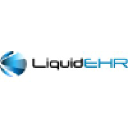
LiquidEHR is a cutting-edge EHR solution designed specifically for optometry practices, offering secure and scalable data management with a user-friendly interface.
With a stellar 4.8 rating, LiquidEHR is the top choice for optometry practices seeking a comprehensive and efficient EHR solution.
5. Praxis
- User-friendly interface for seamless telemedicine consultations
- Compliant with HIPAA for secure and confidential patient interactions
- Customizable features to adapt to specific healthcare practice requirements
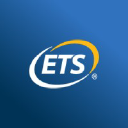
Praxis is a cutting-edge telemedicine software providing a user-friendly platform for secure and efficient virtual healthcare delivery. With customizable features and robust security measures, Praxis is the ideal solution for modern healthcare practices.
Experience seamless telemedicine consultations and enhanced patient care with Praxis.
FAQ
What are the key features to consider when choosing a medical records management tool?
When selecting a medical records management tool, it's crucial to consider features such as security compliance, interoperability, customizable templates, and reporting capabilities. These elements play a vital role in ensuring efficient management of medical records.
How can I ensure data security when using medical records management tools?
Ensuring data security with medical records management tools involves employing encryption protocols, role-based access controls, and regular security audits. Additionally, selecting tools that are HIPAA compliant is essential for safeguarding sensitive medical information.
What factors differentiate top-tier medical records management tools from average ones?
The differentiating factors between leading medical records management tools and average ones often include AI-powered data extraction, seamless integration with EHR systems, and advanced data analytics. These features enable enhanced efficiency and productivity in medical record management.
How do medical records management tools contribute to streamlining healthcare processes?
Medical records management tools streamline healthcare processes by offering automated data capture, streamlined documentation workflows, and real-time access to patient records. This leads to improved operational efficiency and better patient care.
What role do interoperability and scalability play in effective medical records management tools?
Interoperability and scalability are pivotal in medical records management tools as they enable seamless data exchange between systems, adaptability to evolving healthcare needs, and flexible deployment options. These capabilities are crucial for long-term success in managing medical records effectively.
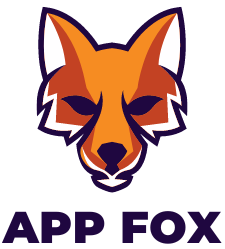
FAQ
When selecting a medical records management tool, it's crucial to consider features such as security compliance, interoperability, customizable templates, and reporting capabilities. These elements play a vital role in ensuring efficient management of medical records.
Ensuring data security with medical records management tools involves employing encryption protocols, role-based access controls, and regular security audits. Additionally, selecting tools that are HIPAA compliant is essential for safeguarding sensitive medical information.
The differentiating factors between leading medical records management tools and average ones often include AI-powered data extraction, seamless integration with EHR systems, and advanced data analytics. These features enable enhanced efficiency and productivity in medical record management.
Medical records management tools streamline healthcare processes by offering automated data capture, streamlined documentation workflows, and real-time access to patient records. This leads to improved operational efficiency and better patient care.
Interoperability and scalability are pivotal in medical records management tools as they enable seamless data exchange between systems, adaptability to evolving healthcare needs, and flexible deployment options. These capabilities are crucial for long-term success in managing medical records effectively.